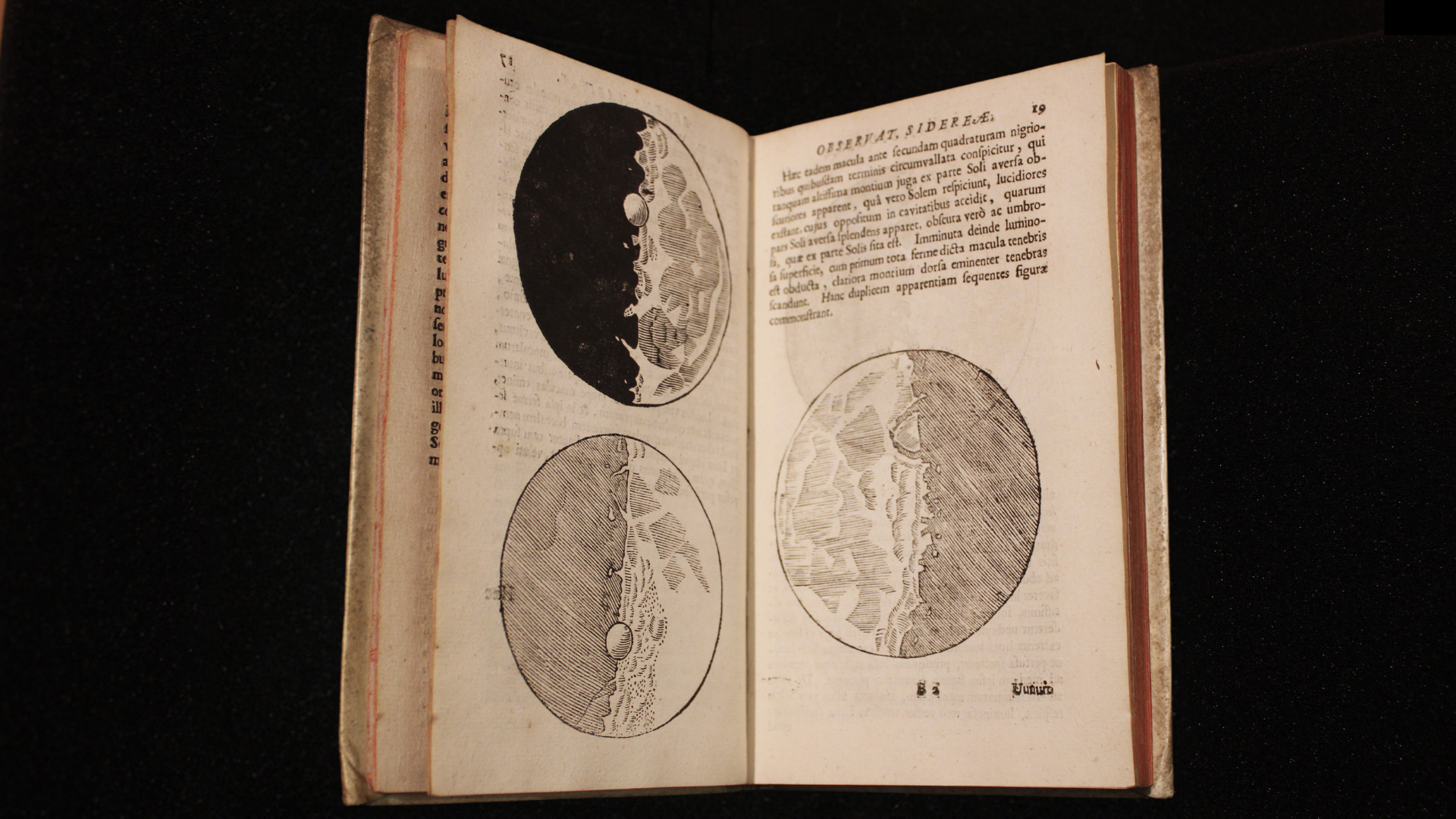David Spergel – Physics as Aesthetics, Cosmology as a Historical Science: From Galileo to the Big Bang

The Academy Library’s 1653 reprint of Siderevs nuncius by Galileo Galilei, originally published in 1610
The American Academy this year inaugurates the Galileo Night Lecture celebrating the fundamental connections between the arts, the humanities, and the sciences. On April 14, 1611, Galileo Galilei joined friends and colleagues from the Accademia dei Lincei at the Vigna Malvasia, on the site of the current Casa Rustica in the Academy’s Bass Garden, to demonstrate his improved perspicillum, named on that occasion a “telescope.” Held each year on or near April 14, the Galileo Night Lecture commemorates this event by bringing a leading scientist to the Academy to speak on a topic of crucial interest to scientists, humanists, and artists.
The 2024 Galileo Night Lecture presents David Spergel, president of the Simons Foundation, one of the largest foundations supporting basic research in mathematics and science, and the Charles Young Professor of Astronomy Emeritus at Princeton University. He is a noted cosmologist who is a member of the American Academy of Arts and Sciences, the National Academy of Sciences, and the American Philosophical Society. Spergel has authored more than three hundred papers with over one hundred thousand citations. His work has been recognized by a MacArthur Fellowship, the Gruber Prize, the Shaw Prize, and the Breakthrough Prize in Fundamental Physics.
“Physics as Aesthetics, Cosmology as a Historical Science: From Galileo to the Big Bang” will introduce our understanding of the evolution of the universe from the Big Bang to galaxies with a focus on observations of the microwave background, the leftover heat from the Big Bang. Spergel will emphasize the role that aesthetics plays in shaping physics, and how cosmologists are historians who try to reconstruct the story of the universe’s evolution from our incomplete observations of its past.
The respondent is Sauro Succi, a principal investigator at the Italian Institute of Technology and the former research director of the Istituto per le Applicazioni del Calcolo Mauro Picone.
The event will be followed by a reception.
Speakers
David Spergel is the president of the Simons Foundation, one of the largest foundations supporting basic research in mathematics and science. Best known for his work in cosmology and theoretical astrophysics, he served as chair of the Department of Astrophysical Sciences at Princeton University for a decade and was the founding director of the Center for Computational Astrophysics. He is a fellow of the American Physical Society and the American Astronomical Society. Spergel has been recognized by NASA for his service on the NASA Advisory Council, his leadership of the Space Studies Board, and his advocacy for the Roman Space Telescope with two Distinguished Service Awards. He currently serves on the board of the Science Philanthropy Alliance and the Carnegie Institute of Science. He has supervised thirty-five PhD theses and mentored over sixty postdoctoral fellows.
Sauro Succi is an Italian scientist, internationally credited for being one of the founders of the successful Lattice Boltzmann method for fluid dynamics and soft matter. From 1995 to 2018, Succi was research director for the Istituto per le Applicazioni del Calcolo Mauro Picone of the Consiglio Nazionale delle Ricerche in Rome. Since 2018, he has been principal investigator of mesoscale simulations at the Italian Institute of Technology. He is also a research affiliate in the Physics Department at Harvard University, a fellow of the Freiburg Institute for Advanced Studies, and a senior fellow of the Erwin Schrödinger International Institute for Mathematical Physics. Succi earned a degree in nuclear engineering from the University of Bologna and a PhD in plasma physics from École Polytechnique Fédérale de Lausanne.
I visitatori dell’American Academy in Rome sono pregati di mostrare un documento d’identità all’ingresso. Non è possibile accedere con bagagli o zaini di dimensioni superiori a cm 40 x 35 x 15. Non sono disponibili armadietti né guardaroba. Non è permesso portare animali (ad eccezione dei cani guida).
L’Accademia è accessibile agli utenti in sedia a rotelle e a coloro che devono evitare le scale. Si prega di inviare una email all’indirizzo tours@aarome.org se voi o qualcuno del vostro gruppo utilizza una sedia a rotelle o altri dispositivi di mobilità, così da poter garantire la migliore facilità di accesso ai visitatori. Se siete persone con disabilità o condizioni mediche che potrebbero richiedere particolari accorgimenti, vi preghiamo di inviarci un’email all’indirizzo tours@aarome.org.
The Helen Frankenthaler Foundation generously supports Conversations/Conversazioni at the American Academy in Rome.